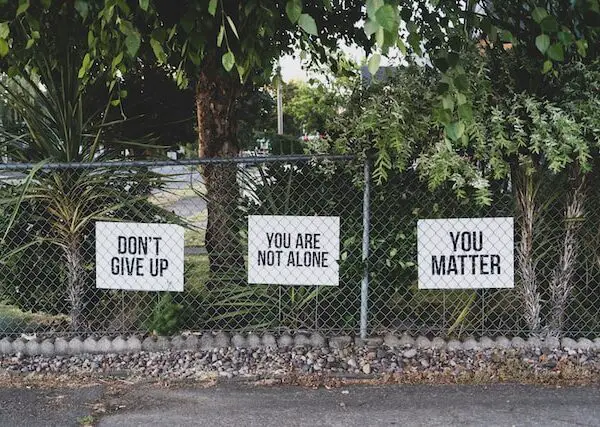Reviving Hope: A Holistic Approach to Mental Wellbeing in Drug Rehabilitation
The journey to recovery for individuals grappling with substance abuse is often arduous, steeped in the necessity for not only physical detoxification but also mental rejuvenation.
Reviving hope during drug rehabilitation requires a multifaceted approach, with the setting playing a crucial role in nurturing mental wellbeing.

A conducive environment acts as a sanctuary, aiding in the holistic healing of mind, body, and spirit.
We will delve into the significance of location in rehabilitation, exploring how serenity, community, and tailored care in strategic settings can forge paths to lasting recovery.
Good Locations For Rehab: Setting The Scene For Recovery
Choosing an ideal location for rehabilitation is more than a matter of geography; it’s about finding a nurturing space that aligns with the individual’s needs for healing.
Good rehab locations share certain characteristics: tranquility, accessibility to nature, a supportive community, and resources for comprehensive care.
A location conducive to healing not only offers a respite from previous life triggers but also provides an ambiance that encourages reflection, growth, and sustainable recovery.
As we explore these havens of hope, we uncover how they serve as the backdrop for transformative life changes.
Rehab Options In New Jersey
New Jersey, often celebrated for its lush landscapes and coastal vistas, presents a unique blend of natural beauty and urban accessibility.
New Jersey Drug Rehab facilities here leverage the state’s tranquil settings, offering retreats amidst sprawling gardens, serene beaches, and quiet, suburban locales.
Facilities such as the Turning Point in Paterson or the Carrier Clinic in Belle Mead are examples of centers that integrate therapeutic landscapes with comprehensive treatment programs.
With an emphasis on individualized care, New Jersey’s rehabs often offer a broad spectrum of services from detoxification to holistic therapies like yoga, meditation, and equine therapy.
Accessibility To Metropolitan Resources
New Jersey’s proximity to metropolitan areas like New York City and Philadelphia is another asset, offering the best of both worlds.
Patients have the tranquility necessary for introspection and recovery, while still maintaining access to the vast medical and psychiatric resources these large cities provide.
This dual advantage allows for specialized treatment plans that can include cutting-edge research trials, a plethora of support groups, and a diverse range of mental health professionals.
The state’s well-developed transportation network also makes it easier for family members to visit, supporting the essential role of loved ones in the recovery process.
A Community-Centric Approach
Community plays a pivotal role in rehabilitation, and New Jersey’s diverse and densely populated nature fosters an environment ripe for community-based recovery programs.
From the urban outreach in Newark to the seaside support groups in Atlantic City, there is a strong emphasis on creating a supportive network that encourages shared experiences and mutual growth.
This community-centric approach ensures that individuals are not isolated during their recovery journey but are instead surrounded by peers and professionals who understand the complexities of addiction.
It’s an embodiment of the adage “it takes a village,” applying it to the healing process to ensure that hope is not just revived, but also nurtured and sustained.
The Role Of Therapy In Drug Rehabilitation
In the realm of drug rehabilitation, therapy stands as a cornerstone, essential for addressing the psychological underpinnings of addiction.
A well-rounded therapeutic program engages individuals on multiple levels, addressing cognitive patterns, emotional traumas, and social dynamics that contribute to substance abuse.
Through the lens of different therapeutic modalities, we’ll explore how various approaches can be integrated to offer a comprehensive support system, fostering lasting change and empowering individuals in their recovery journey.
Cognitive-Behavioral Therapy (CBT)
Cognitive-Behavioral Therapy (CBT) is a widely endorsed approach in drug rehabilitation due to its efficacy in altering destructive thought patterns.
By dissecting the relationship between thoughts, feelings, and behaviors, CBT guides individuals to identify and challenge their cognitive distortions.
Rehab facilities like the Hazelden Betty Ford Foundation incorporate CBT to help patients develop coping strategies that target problematic drug-related thoughts and behaviors.
This practical approach equips individuals with the tools to manage cravings and avoid relapse, promoting self-efficacy and control over their recovery process.
Dialectical Behavior Therapy (DBT)
Dialectical Behavior Therapy (DBT), a form of CBT, is particularly effective for individuals with dual diagnoses or those who struggle with emotional regulation.
DBT emphasizes a balance between accepting oneself and the need for change.
Programs that implement DBT, such as those offered at Silver Hill Hospital in Connecticut, focus on building skills in mindfulness, distress tolerance, emotional regulation, and interpersonal effectiveness.
Through individual and group sessions, patients learn to navigate emotional storms and reduce self-destructive behaviors, thereby reducing the likelihood of substance misuse.
Family Therapy
Addiction does not occur in isolation; it impacts family dynamics and relationships.
Family therapy is a therapeutic approach that involves family members in the rehabilitation process, recognizing their integral role in recovery.
Facilities that prioritize family involvement, like the Caron Treatment Centers, offer family education programs and therapy sessions to address the systemic nature of addiction.
By working to heal relationships and improve communication, family therapy strengthens the support network crucial for the individual’s recovery, thus addressing the social aspect of substance abuse.
Key Remarks
The journey to recovery from addiction is a complex tapestry of physical, mental, and emotional healing, where the location of rehabilitation and the therapeutic approaches employed are pivotal.
New Jersey’s serene settings, alongside its blend of urban and suburban resources, exemplifies an ideal rehabilitation environment, promoting a balanced path to recovery.
The incorporation of diverse therapeutic modalities—such as CBT, DBT, and family therapy—into these settings further underscores the importance of a holistic approach.
This multifaceted strategy not only revives hope but sustains it, ensuring that individuals grappling with substance abuse have the support, skills, and environment needed to rebuild their lives.
The road to mental wellbeing in drug rehabilitation is a journey of transformation, one where every step taken is a testament to the resilience of the human spirit and the power of integrated care.
